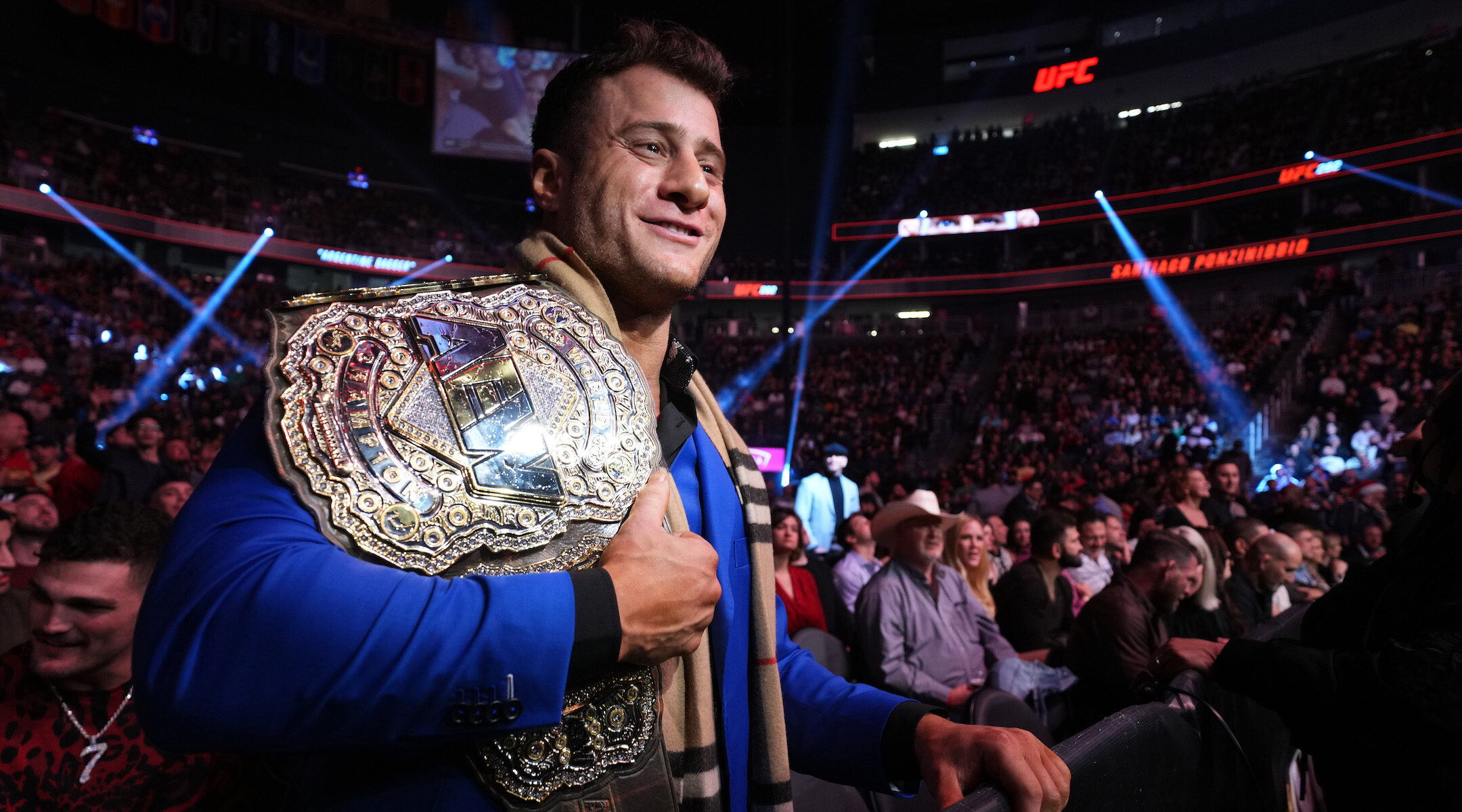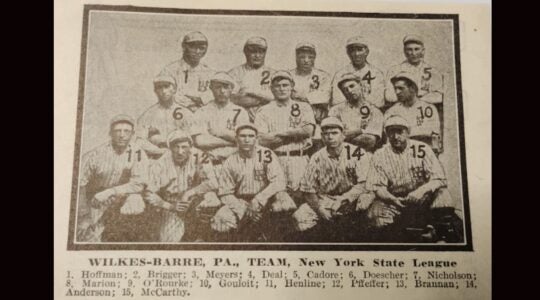COMMACK, N.Y. (JTA) — Maxwell Jacob Friedman has never been short on confidence, so when he was inducted into the National Jewish Sports Hall of Fame on Monday, he described it as the fulfillment of a childhood prediction.
“I remember in the basement of my old home in Plainview, my father had shown me a Jewish athletes almanac,” Friedman, 27, recalled in his remarks. “I remember reading through it, and it wasn’t particularly big, but the names in it were big. I remember reading that book and thinking to myself, ‘I’m going to be in this book one day.’”
At the same time, the professional wrestling star — known as MJF — recognizes that his meteoric rise isn’t exactly a typical career path for Jewish kid from Long Island. Friedman is just the second pro wrestler to be inducted in the National Jewish Sports Hall of Fame — 1990s icon Bill Goldberg entered in 2010 — and the first to be inducted during his career, which remains very much on the rise.
Friedman is the longest-reigning world champion in the four-year history of All Elite Wrestling — a pro wrestling promotion based in Jacksonville, Florida — and makes his feature film debut this weekend in “The Iron Claw,” which follows the tragic story of pro wrestling’s Von Erich family.
“When you would say that to people out loud,” Friedman said of his childhood ambitions, “they would laugh, they would snicker, because what is a Jew to everyone else around the world? Probably not a Hall of Fame athlete. Well, to that, I say, ‘Screw yourself,’ because a Jew can be literally anything if we set our mind to it.”
That combative confidence serves Friedman particularly well now, not only in his chosen profession, but in the way he aims to represent Jews more broadly.
Membership in the Jewish Hall of Fame isn’t the only thing Friedman shares with Goldberg: They are both outliers among Jewish pro wrestlers, most of whom perform under stage names. By contrast, Friedman not only kept his first and last name while in the ring but changed his middle name to make it sound more Jewish. In real life, his name is Maxwell Tyler Friedman.
He also emphasizes his Jewish heritage in his presentation, using social media to share photos from his bar mitzvah and talking openly about antisemitic taunts he’s faced.
“When everyone else thinks of Jews, it comes with a lot of discriminatory thoughts and processes,” Friedman said. “But when I thought of a Jew, I always thought of someone strong, intelligent, brave, because when you think about it, in almost every single piece of history of humankind, whenever there was an issue, we got blamed for it. We got blamed for it, we got attacked for it, we got run off for it and we’re still here.”
He added, “You would think by now, people would understand that we’re not very easy to run off. We’re not very easy to scare. They’re still trying, but they’re still failing.”
As a visibly Jewish champion, Friedman hopes to send the message that Jews will always overcome hatred — particularly in the present climate, when reports of antisemitism have spiked amid the Israel-Hamas war.
He likewise did not downplay his Jewish identity in the earlier part of his career, when he was presented in the ring as a villain.
“I’ve never read more hate-filled tweets and comments in my entire life,” Friedman said. “Think of any horrible thing you can say to a Jew, I’m reading it, but honestly, it doesn’t deter me. It just makes me want to talk about being a Jew more.”
As he continues his wrestling journey as a newly minted Hall of Famer — appearing regularly on AEW’s flagship broadcasts on TNT and TBS — Friedman is thrilled for the opportunity to give young Jewish fans someone to be proud of — someone, he said, “they get to look up to that’s a strong, handsome — humble — Jew.”
JTA has documented Jewish history in real-time for over a century. Keep our journalism strong by joining us in supporting independent, award-winning reporting.






